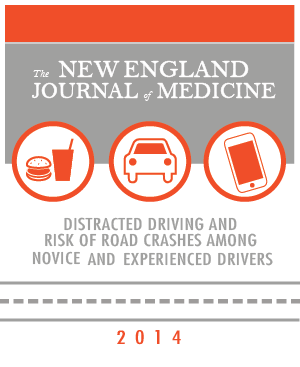Naturalistic Driving Research
The Virginia Tech Transportation Institute conducts naturalistic driving research that can help commercial vehicle drivers and businesses better understand human factors relating to crashes. Below are a few example projects. 
- Klauer, S. G., Guo, F., Simons-Morton, B. G., Ouimet, M. C., Lee, S. E., & Dingus, T. A. (2014). Distracted Driving and Risk of Road Crashes among Novice and Experienced Drivers.New England Journal of Medicine, 370, 54-59.
- Dingus, T. A. (2014). Estimates of prevalence and risk associated with inattention and distraction based upon in situ naturalistic data. Annals of Advances in Automotive Medicine, 58, 60-68.
- Dingus, T. A., Klauer, S. G., Neale, V. L., Petersen, A., Lee, S. E., Sudweeks, J., Perez, M. A., Hankey, J., Ramsey, D., Gupta, S., Bucher, C., Doerzaph, Z. R., Jermeland, J., & Knipling, R.R. (2006). The 100-Car Naturalistic Driving Study: Phase II – Results of the 100-Car Field Experiment (Contract No. DTNH22-00-C-07007). Washington, DC: National Highway Traffic Safety Administration.
- Chen, R., & Gabler, H. C. (2014). Risk of thoracic injury from direct steering wheel impact in frontal crashes. Journal of Trauma and Acute Care Surgery, 76(6), 1441–1446. doi: 10.1097/TA.0000000000000222
–
Center for Truck and Bus Safety
VTTI’s Center for Truck and Bus Safety (CTBS) focuses on the research, development, and evaluation of heavy-vehicle systems. CTBS is dedicated to the design, delivery, and implementation of leading-edge research and development efforts aimed at improving the health and safety of heavy-vehicle drivers. A few example projects are listed below.
- Electronic Logging Devices – FMCSA: The purpose of this study was to assess the benefits of installed electronic hours-of-service recorders (EHSRs) on safety and hours-of-service (HOS) violations related to Class 7 and 8 trucks as they operated during normal revenue service.
- Fatigue Management Program – NAFMP: The fatigue management program was sponsored by the North American Fatigue Management Program (NAFMP) and was completed in 2012. This program sought to address a number of issues through the comprehensive analysis of various factors that affect fatigue in truck drivers.